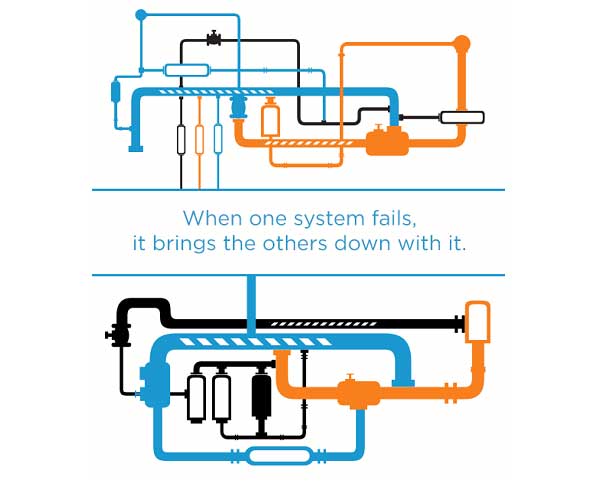BUILDING RESILIENCE is about making people, communities and systems better prepared to withstand catastrophic events — both natural and man made — and able to bounce back more quickly and emerge stronger from these shocks and stresses.
In July 2013, Dr. Judith Rodin, president of the Rockefeller Foundation, addressed the crowd of The City Resilient, an event co-hosted by the Rockefeller Foundation and PopTech at BAM in New York City. The event focused on how to build communities that can recover, persist or even thrive amid disruption. Following is an excerpt from her presentation:
All cities deal differently with these shocks. Some will return quickly to a full way of life. Others will take much longer. And even others will never fully recover at all. What makes this true? Why do some cities never recover, while others seem to rebound in just a matter of weeks?
The answer, as I am sure you have surmised by now, is resilience. We define resilience as: “…the capacity of individuals, communities and systems to survive, adapt and grow in the face of changes, even catastrophic incidents.”
In other words, building resilience is about making people, communities and systems better prepared to withstand catastrophic events — natural, climate change-driven, and man-made — and able to bounce back more quickly and sometimes even emerge stronger from those shocks and stresses.
As we unpack what resilience is, it’s helpful to talk briefly about what resilience is not.
It is not solving for the last problem.
For example, after 9/11, property owners were so worried about attacks from the air that they buried their generators underground, where they were submerged by storm surge during Sandy.
It is not an innate human quality that bubbles up in times of stress — as it is often talked about, for example, after the Boston bombings.
And it is not the emergency response after the disaster has hit.
Rather, resilience is what we build in those moments between catastrophe and the next big disruption, a skill that can be learned, and a quality that can be adapted, from toughening up building codes in San Francisco to withstand the shocks of the next earthquake to the creation of “Evacuspots” in New Orleans to ensure a speedy evacuation of residents ahead of future storms.
And building resilience is critical to protecting the poorest and most vulnerable among us, those who typically live in the most easily impacted areas and who are least likely to have savings stashed away or insurance to protect them in case of disaster.
© The Rockefeller Foundation, [1998-2013]. All rights reserved.
Read more about “The Rockefeller Foundation 100 Resilient Cities” challenge.
Article reprinted with permission from Community Vitality Publication, Spring 2014, © 2014 The Ford Family Foundation. For the full Community Vitality edition of ”The Time to Prepare”, visit http://www.community-vitality.org/Spring2014TimeToPrepare.html
 About the Author: Judith Rodin is president of The Rockefeller Foundation, one of the world’s leading philanthropic organizations. A pioneer and innovator throughout her career, Dr. Rodin was the first woman named to lead an Ivy League Institution and is the first woman to serve as The Rockefeller Foundation’s president in its nearly 100-year history. She has also been recognized as one of Forbes Magazine’s World’s 100 Most Powerful Women in 2011, 2012 and 2013.
About the Author: Judith Rodin is president of The Rockefeller Foundation, one of the world’s leading philanthropic organizations. A pioneer and innovator throughout her career, Dr. Rodin was the first woman named to lead an Ivy League Institution and is the first woman to serve as The Rockefeller Foundation’s president in its nearly 100-year history. She has also been recognized as one of Forbes Magazine’s World’s 100 Most Powerful Women in 2011, 2012 and 2013.
 As we look toward building more resilient cities, we’re working on new ways to redesign how our water, energy, and transportation systems work together.
As we look toward building more resilient cities, we’re working on new ways to redesign how our water, energy, and transportation systems work together.


